Getting Your Commercial Kitchen Up and Running
August 29, 2019Getting your commercial kitchen up and running.
Serving Ware
If there’s nothing to serve the food on, there’s no restaurant. You’ll need tons of cutlery, plate ware, bowls, ramekins, cups, and glasses. Consider the number of tables you can fit in your restaurant and how many guests you hope to serve every night when factoring in how much to buy. Consider breakage – in the chaotic environment of commercial kitchens; it’s not uncommon to lose a plate or glass every few shifts.
Cooking Equipment for Your Commercial Kitchen
Consider what tools you’d need to execute your entire menu in one shift. Pots of all sizes, sauté pans, tasting spoons, mixing spoons, sheet pans, whisks, fish spatulas, ladles, bowls of all sizes, squeeze bottles, bench scrapers – the list goes on and varies widely depending on the type of food you want to make. You’ll also need more of each item than you expect.
Safety Equipment and Your Commercial Kitchen
Make sure your kitchen has proper safety equipment. A well-stocked first aid or medical emergency kit is crucial in a commercial kitchen that runs on fire and knives. Check your local fire department guidelines before purchasing fire, safety, or sanitation equipment, and avoid potential complications by always keeping your kitchen up to fire code standards.
Commercial Kitchen Freezers and Refrigerators
All commercial kitchens require a refrigeration system of some type. Without a fridge, you can’t keep the ingredients and prepared foods fresh. Freezers are also crucial for inventory management because it’s much more cost-effective to buy 300 steaks and freeze them than to buy ten steaks every day.
Industrial-grade refrigeration units are designed to meet the unique needs of the food industry. For example, they can cool large pots of sauce to a safe temperature in record time, so they’re a crucial purchase for any food handling operation. You’ll have to decide between reach-in units and walk-in units.
Make sure to seek professional help for installation and that you know how to properly maintain your unit, as they can be costly to repair.
Food Preparation Counters and Cutting Boards
Prep tables, counters, and cutting surfaces are essential to any commercial kitchen and come in various sizes. Choose preparation surfaces made of stainless steel, sturdy against corrosion, doesn’t absorb bacteria from food or meat and can withstand the harsh cleaning products used in commercial kitchens. On the line, you’ll want food prep counters that have small refrigerators underneath them for easy access to food prepped for each station.
As for cutting surfaces, choose either plastic or wooden cutting boards. Plastic boards are more comfortable to sanitize but can develop deep grooves that can hide bacteria. Wooden boards are generally tougher to clean than plastic ones but don’t develop grooves as quickly.
Ranges and Ventilation
If your restaurant plans on making anything but salad, you’ll need a kitchen range. The range is the powerhouse of the kitchen, so it’s essential to choose one that meets both your cooking needs. Like residential ranges, commercial units can be either gas or electric. If you’d prefer a visual, responsive cooking experience, go for a gas range.
Gas ranges make it easier to judge heat levels and change from high to low settings much faster than their electric counterparts. Alternatively, electric ranges have smooth, elegant, easy-to-clean designs and come in three sub-categories.
Standard electric ranges use coils to heat food, whereas you cook directly on the flat surface of smooth-top electric ranges. Electric induction ranges employ magnetic coils beneath a ceramic glass top to generate heat, but they require unique magnetic cookware to work.
Ovens
Most ranges come outfitted with an oven. If your operation centers around baked goods, it may be in your best interest to purchase a range with a convection oven setting. Unlike regular ovens, convection ovens have a fan and exhaust system that blow hot air around the food. They are a great appliance for roasting, toasting, making pies and cookies, or dehydrating.
Sinks
Sinks are vital to any kitchen because they provide running water as well as space for handwashing, cleaning produce, defrosting frozen meat under running water, or washing the occasional cooking utensil as needed.
Health and safety authorities typically require commercial kitchens to install a triple-sink wash station and a commercial dishwashing machine, as well as a dedicated handwashing sink.
4 Money-Saving Strategies You Can Use in Your Restaurant NOW
Running a restaurant is one of the most interesting and lucrative businesses one can engage in with the right money-saving strategies. However, it also poses to be one of the most difficult. Many factors have to be put into consideration in order to make sure that...
Businesses that Should be Selling Frozen Beverages in 2017
Adding a frozen beverage machine to your slate of money-making channels is great way to drum up additional sales. Since there is low overhead cost associated with selling frozen beverages, whether it is an FCB (Frozen Carbonated Beverage) or FUB (Frozen Uncarbonated...
Start Preparing Your Restaurant for Summer!
As a restaurant owner, you may have noticed that weather has affects the number of customers that walk through your door. It is widely understood, for example, that rain drives customers indoors as they seek shelter from the storm. Snowstorms, of course, discourage...
Create a Memorable Dining Experience with the Right Flatware
According to Will Rogers, “you will never get a second chance to make a first impression.” In a restaurant, flatware is a small but essential part of making a great impression. Flatware is a particularly important design element because customers won’t just look it;...
Cleaning Your Commercial Deep Fryer Made Easy
A commercial deep fryer requires daily cleaning to keep the appliance in perfect working condition. However, cleaning the restaurant’s deep fryer is one of the most dreaded tasks for many restaurant workers. Who could blame them? The process of cleaning a deep fryer...
The Top Chefs Use Cast Iron. Do You?
From pots to pans, restaurant cookware has been made out of all kinds of materials. What kind do you use? It’s time for you to use cast iron. Cast iron cookware has many benefits. Let’s take a look at why you need to be using cast iron in your professional kitchen....
How to Crash the Dine and Dash
Any business that sells physical products is subject to the occasional theft. So do restaurants, but it's just called dine and dash. Those who dine and dash take advantage of the fact that they receive their purchase before they pay, rather than after. In many...
Preparing for Your Restaurant’s Grand Opening
Starting a restaurant is an adventure, especially with the Grand Opening. There will have been months of planning, preparation, purchasing and hiring for your grand opening. When you finally have everything ready, your grand opening is a big deal. If everything is...
Guide to Buying the Perfect Knives
Knives are arguably one of the most important tools in any kitchen. Your chefs are the heartbeat of your restaurant and they deserve quality knives that ease the task of cooking great food. When buying the perfect knives for your chefs, keep in mind that the most...
Equipment Buying Tips for Restaurant Owners
If you own a restaurant or you’re starting a new one, you will need the right equipment. It is important to choose quality equipment that will not only get the job done well but also cost you less in the long run. However, it can be hard to know where to start. Here...
5 Decor Ideas for an Inviting Restaurant Feel
Great food and customer service are important parts of the equation that keeps customers coming, but the restaurant experience is not just about the food. The best restaurants cater to every aspect of a customer’s experience. The right ambiance is a must. This means...
5 Tips for an Ergonomically Sound Restaurant
The physical environment of your restaurant should not only be appealing to customers but also be comfortable and safe for your employees. Due to the repetitive motions that characterize the job description of restaurant employees, there is a potential for...
How to Make Your Silverware Sparkle and Shine
No one wants to eat off of dirty or tarnished silverware. While it’s easy to clean silverware of leftover food, the tarnishing will still linger unless you take steps to make your silverware shine. To make the best impression on your guests, your silverware should not...
Top 6 Movies for Restaurant Owners
The movies that connect with us on a personal level are the ones that linger in our memories forever, especially when it deals with food and the drama in a commercial kitchen. Achieving that level of intimacy in the fictional world of movies is easier said than done....
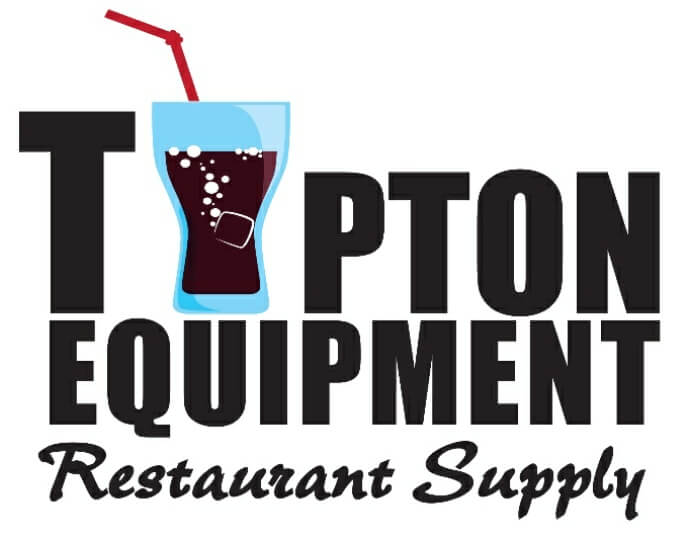
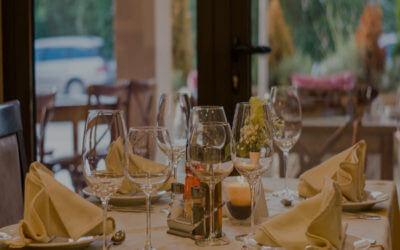


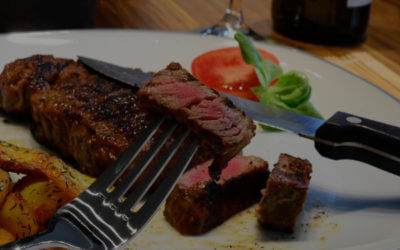

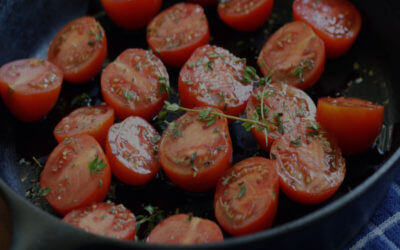


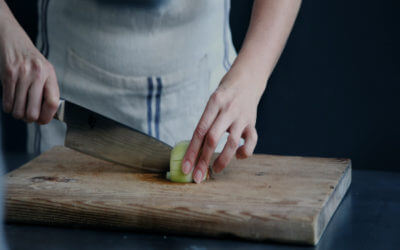

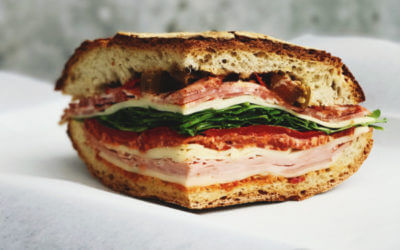
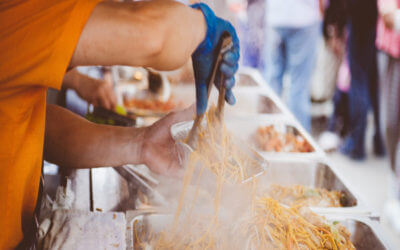
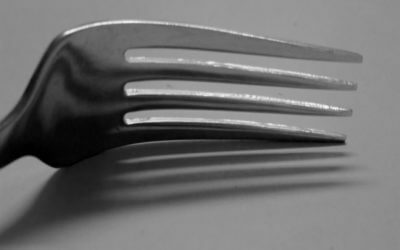
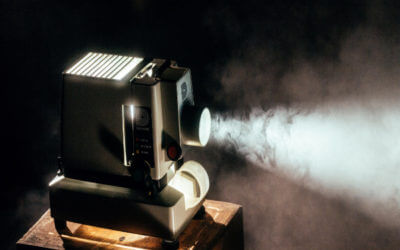
Ensuring adequate tableware is essential for any restaurant, but equally important is having reliable commercial food processing equipment to handle high-volume food preparation. With a fast-paced kitchen environment, investing in durable equipment can streamline operations, reduce downtime, and meet customer demands efficiently, helping restaurants serve quality meals without delays or setbacks in service.